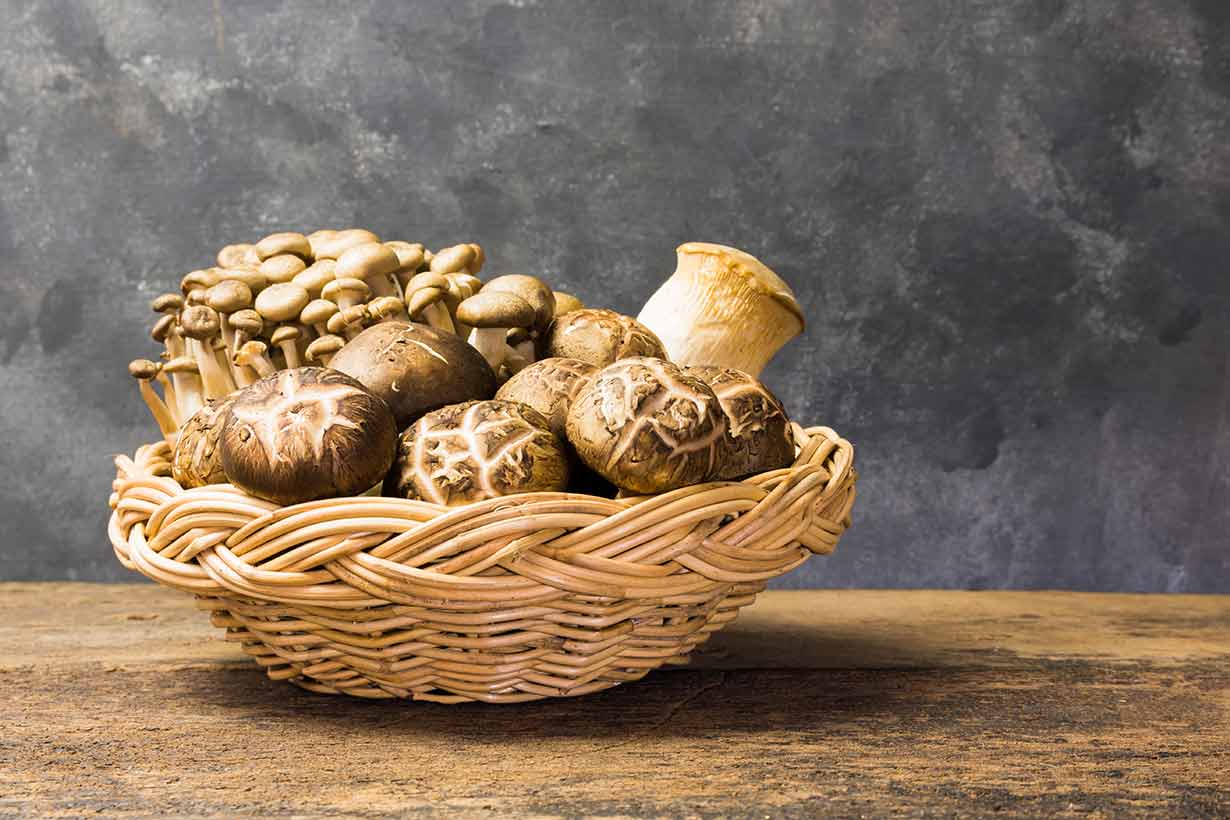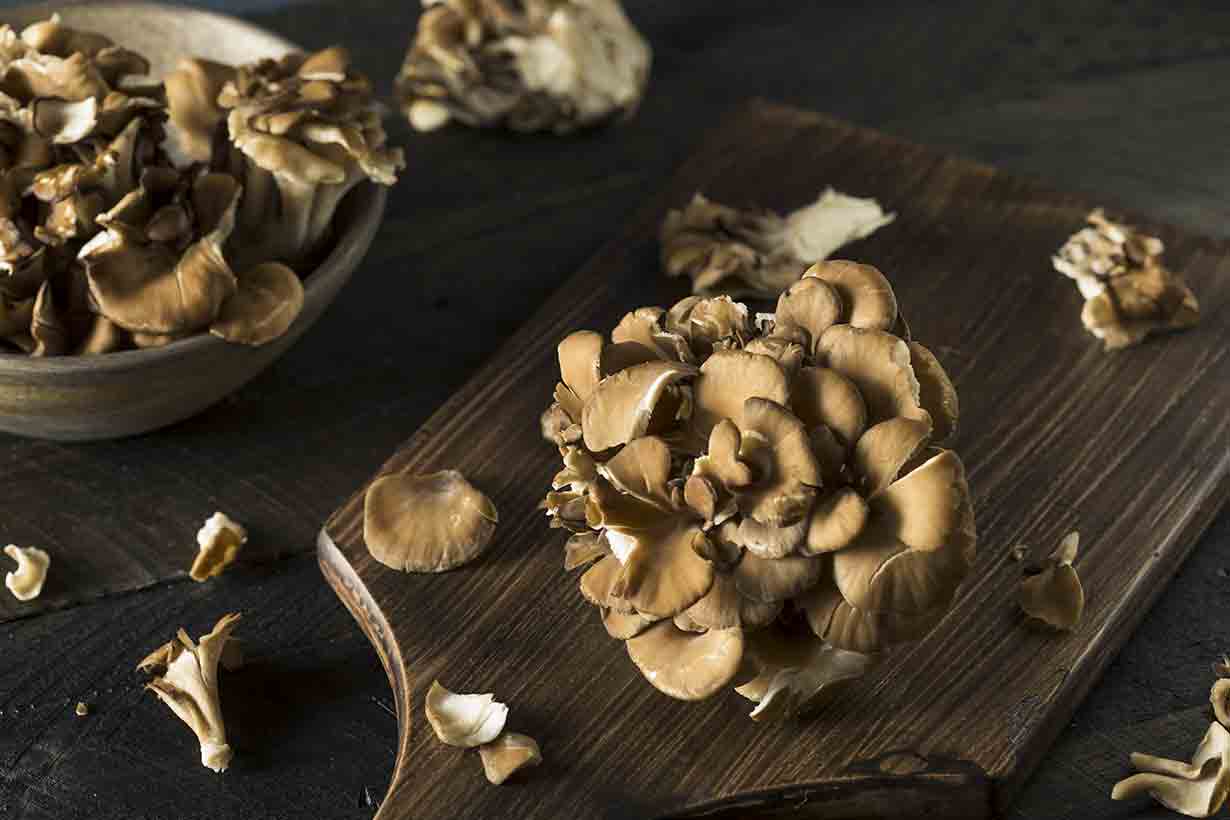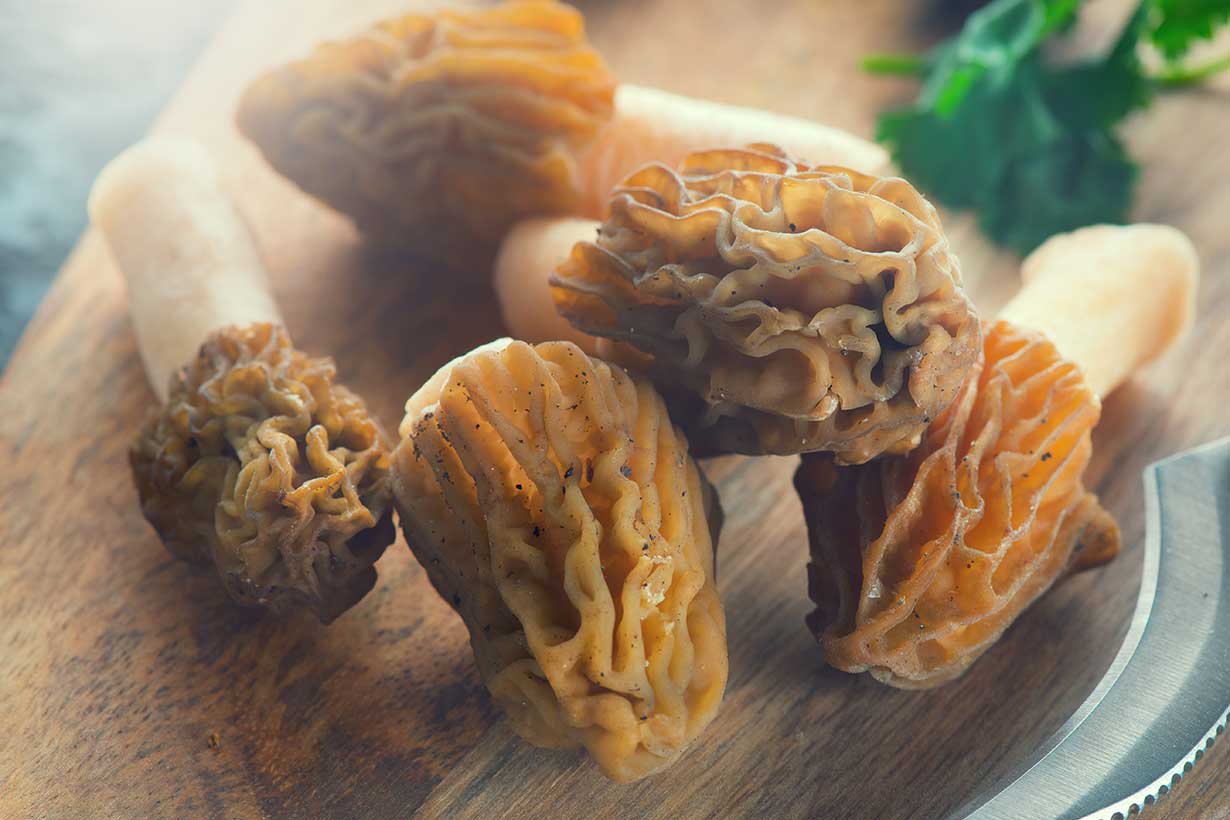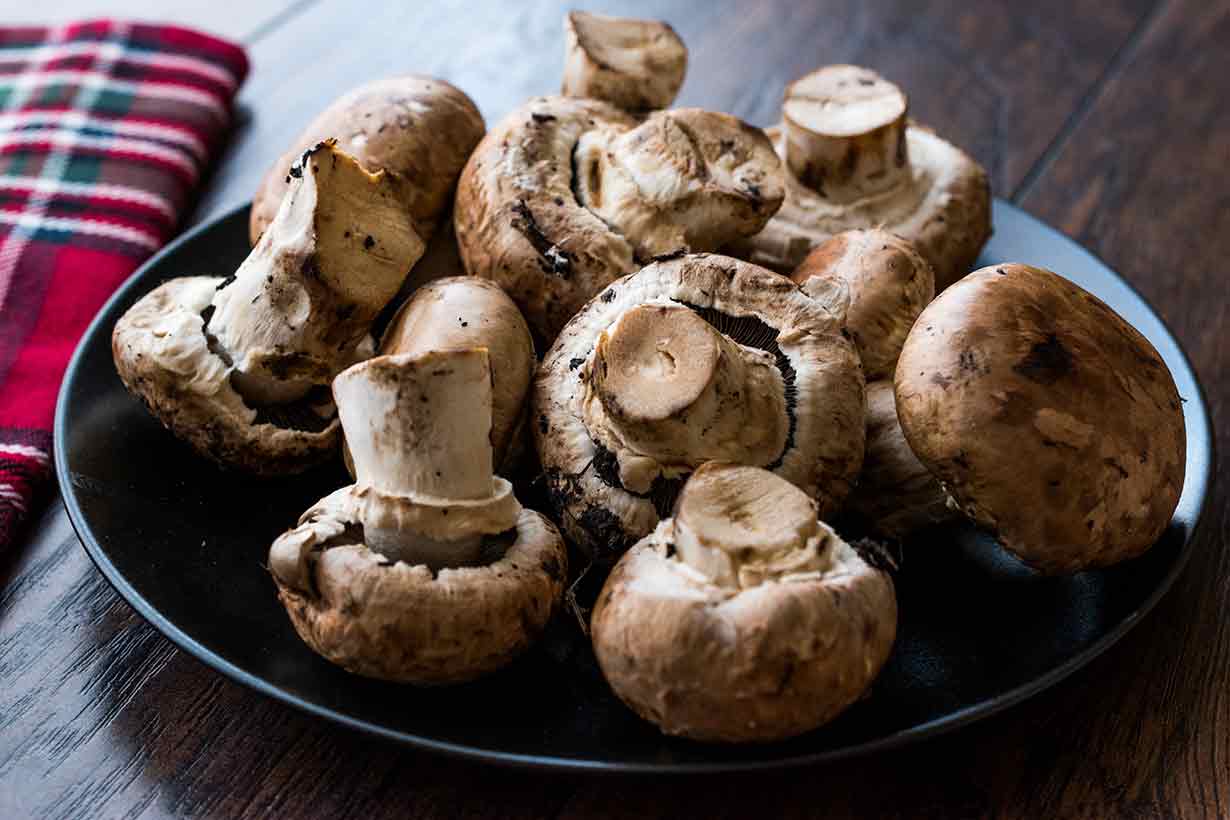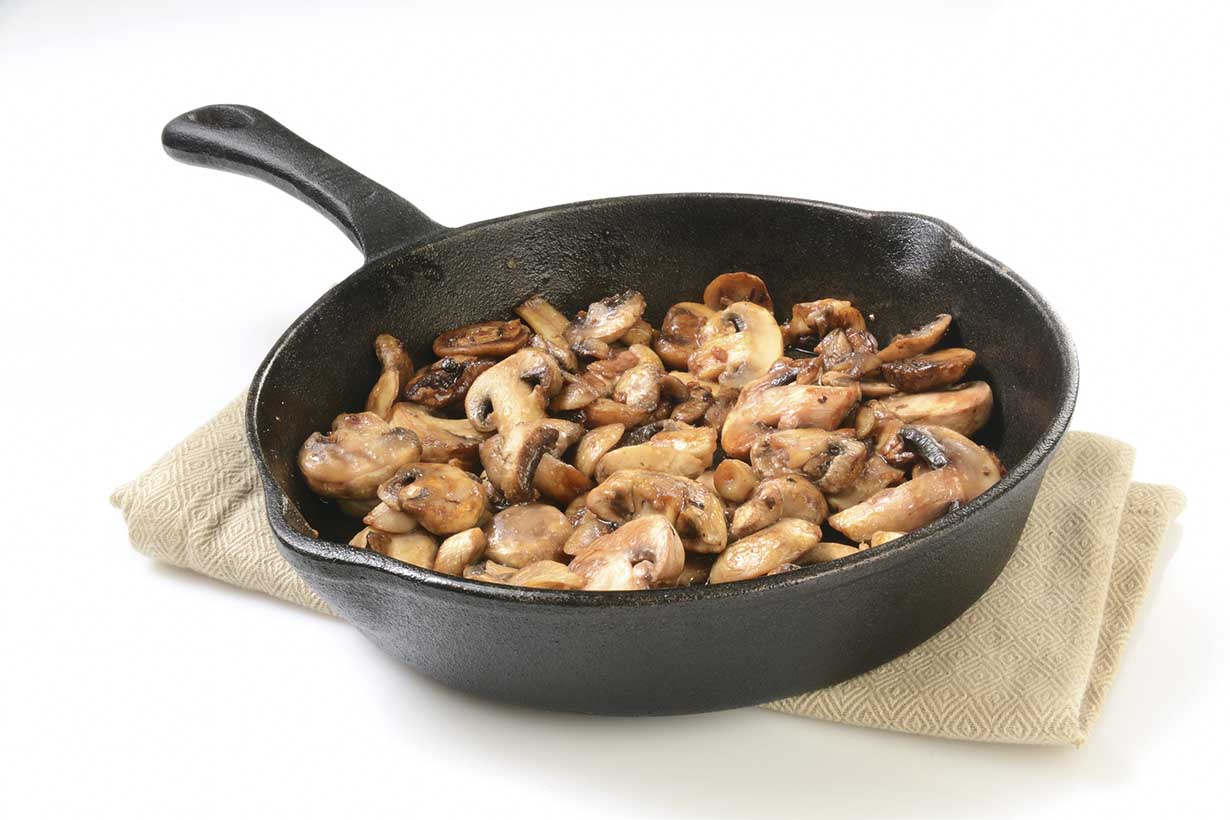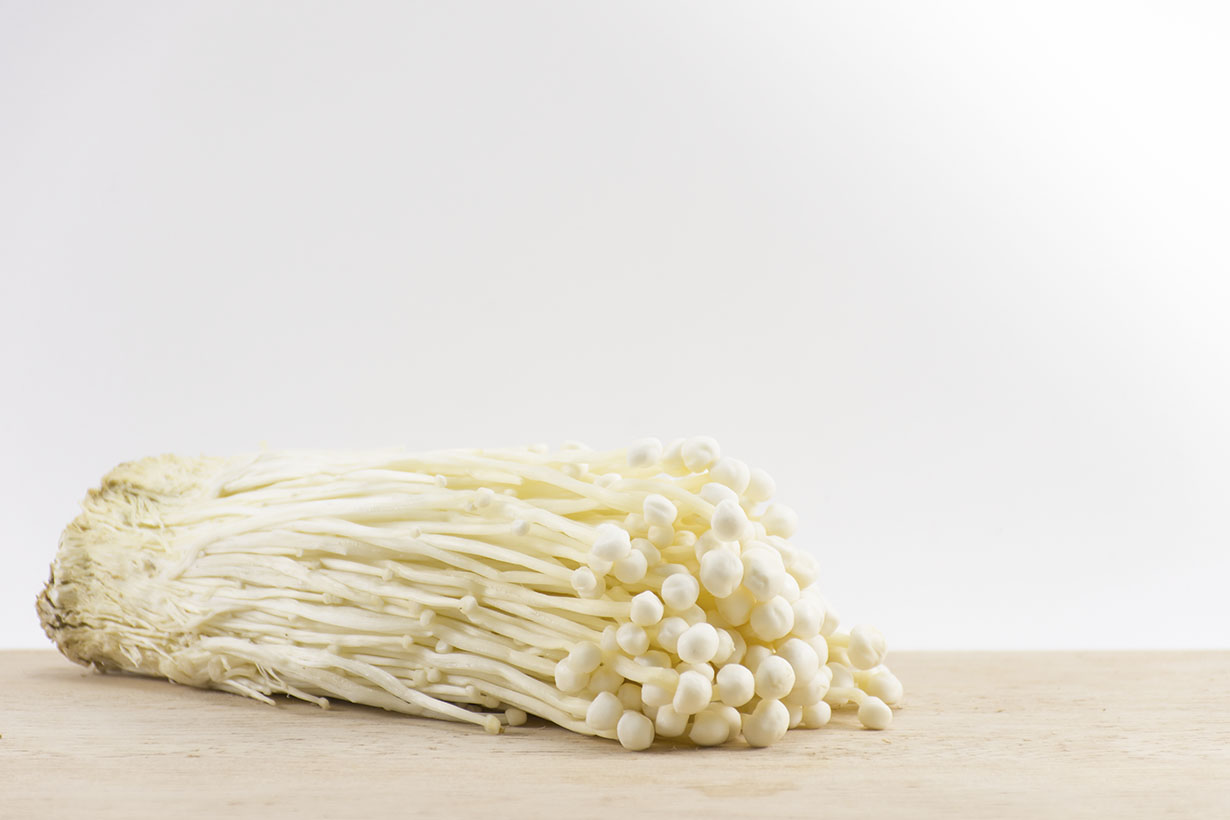King oyster mushrooms are one of the world’s most popular culinary mushroom varieties.
However, what do they offer regarding nutritional benefits?
This article examines the nutritional properties and potential benefits of king oyster mushrooms.
Table of contents
What Are King Oyster Mushrooms?
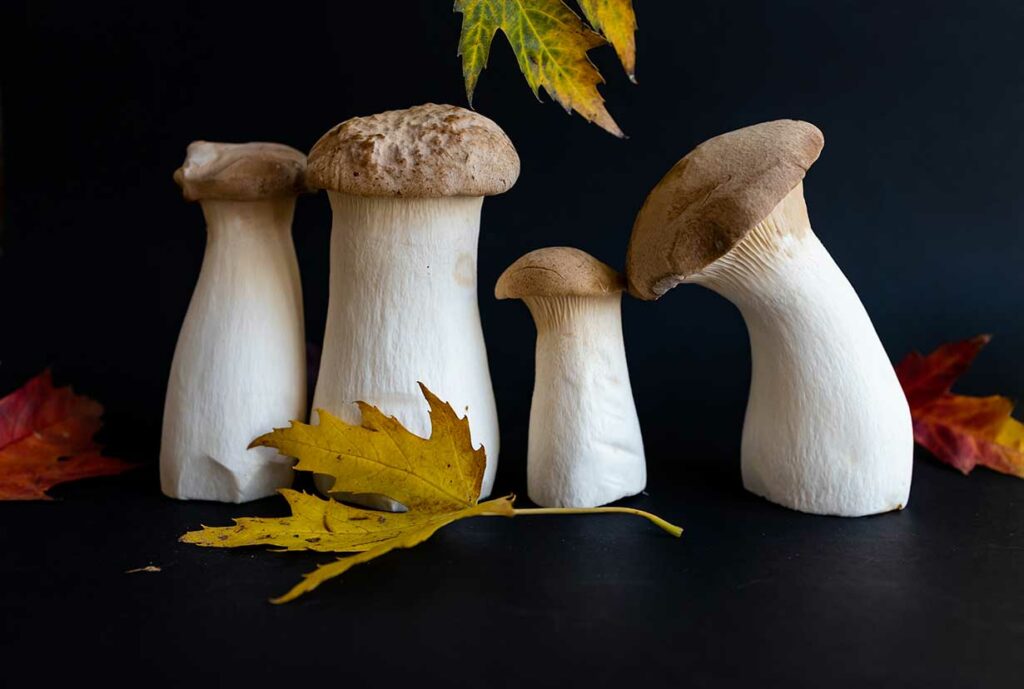
King oyster mushrooms, also known by their scientific name ‘Pleurotus eryngii,’ are native to the Mediterranean, North Africa, and parts of the Middle East and Asia (1, 2).
As shown in the above image, king oyster mushrooms have a long and thick white stem and a brown cap that is commonly around two inches (5 cm) wide. They are among the largest edible mushrooms.
The mushrooms are particularly popular in East Asian cuisine and feature in various dishes from this region of the world.
In recent times, king oyster mushrooms have had worldwide distribution and production, and they are widely available in large grocery stores.
In addition to their ‘king oyster’ name, the mushrooms have several other nicknames, including ‘king trumpet.’
Taste and Texture
King oyster mushrooms have an interesting taste and texture.
Despite being relatively mild by themselves, they have a refreshing earthy flavor. The mushrooms also absorb flavors from dishes in which they are incorporated.
King oysters have a chewy and meaty texture, somewhat resembling squid.
Since the mushrooms are thick and have a high water content, they are also quite juicy.
Nutrition Facts
The following table and lists display the full nutritional values for king oyster mushrooms per 3.5 oz (100 gram) serving.
The source of nutritional data is the USDA’s FoodData Central database. Daily values have been calculated using the FDA’s recommended daily values, based on a 2000-calorie diet (3, 4).
| Name | Amount | % Daily Value (DV) |
|---|---|---|
| Calories | 46 kcal | |
| Carbohydrates | 8.5 g | 3.1% DV |
| Fat | 0.31 g | 0.4% DV |
| Protein | 2.41 g | 4.8% DV |
As shown in the table, king oyster mushrooms are low in calories. They provide a small to moderate level of carbohydrates and a low level of fat and protein.
Unfortunately, the USDA data does not provide the full nutritional breakdown for carbohydrates (fiber and sugar) and fat (saturated, monounsaturated, and polyunsaturated).
Vitamins
- Biotin: 36.7% DV
- Niacin (vitamin B3): 40.3% DV
- Riboflavin (vitamin B2): 18.5% DV
- Thiamin (vitamin B1): <1% DV
- Vitamin B6: 0.8% DV
- Vitamin D: 0.4% DV
King oyster mushrooms provide a significant source of biotin, niacin, and riboflavin.
These B vitamins play a role in the metabolism of food and contribute to the immune system (5, 6, 7).
Minerals
- Calcium: 0.2% DV
- Copper: 5.2% DV
- Iron: 1.9% DV
- Magnesium: 3.2% DV
- Manganese: 3.9% DV
- Phosphorus: 7.2% DV
- Potassium: 6.3% DV
- Selenium: 2.2% DV
- Sodium: <0.1% DV
- Zinc: 5.7% DV
King oyster mushrooms provide a broad range of essential minerals in relatively small to moderate amounts.
Water Content
King oyster mushrooms have a high water content; they are 88% water by weight.
Potential Benefits of King Oyster Mushrooms
There has been a lot of research on king oyster mushrooms, shiitake mushrooms, and mushrooms in general.
However, much of this research has focused on high-strength extracts used in in-vitro studies (sometimes referred to as “test tube” studies). As a result, it isn’t easy to ascertain how relevant findings from this type of study are to human health.
This section examines some potential benefits of king oyster mushrooms based on the compounds they contain, animal research, and study findings from trials using human participants.
1) May Help Improve Blood Sugar and ‘Fullness’ Levels
A randomized controlled crossover trial published in 2022 recruited 19 participants to examine the postprandial (post-meal) effects of king oyster mushrooms on blood sugar levels and hunger (8).
Participants consumed two different meals at different points; one containing king oyster mushrooms and a control meal matched for calories and macronutrients.
After each meal, blood tests were taken every thirty minutes until three hours after the meal.
Notably, the participants had a lower blood sugar response after the meal containing king oyster mushrooms. Additionally, levels of a ‘hunger hormone’ called ghrelin were lower after the king oyster meal alongside higher ratings of self-perceived fullness and a lower desire to eat.
2) May Help To Lower LDL Cholesterol Levels (Weak Evidence)
Two studies from 2011 and 2020 suggest that king oyster mushrooms may impact LDL cholesterol (LDL-C) levels.
In one study, researchers fed rats with high cholesterol a powdered king oyster mushroom supplement for six weeks. Notably, the king oyster-supplemented group had a 62.5% reduction in LDL-C compared to rats not given the supplement (9).
Additionally, a 2020 study examined the effect of a polysaccharide extract from king oyster mushrooms on mice fed a high-fat diet. Polysaccharides are a type of carbohydrate found within the mushroom. Interestingly, compared to mice who did not receive the supplement, the mice fed king oyster polysaccharides had less body weight gain, and total cholesterol and LDL-C levels decreased (10).
The researchers noted the reason for this was likely that the bioactive polysaccharides extracted from king oysters improved the gut bacteria balance of the mice and increased the excretion of fats into feces (10).
It is important not to read too much into these animal studies. The results were in mice rather than humans and using high-strength extracts rather than whole mushrooms.
Thus, any potential benefit of king oyster mushrooms lowering LDL-C levels requires confirmation by clinical trials in human participants.
3) High Levels of Ergothioneine
King oyster mushrooms are a significant source of a unique amino acid called ergothioneine (11).
There are relatively few dietary sources that provide high levels of ergothioneine, and the compound is being investigated for its potential benefits for human health (12, 13, 14).
Recent research has established that blood levels of ergothioneine tend to fall with age. Also, some studies have noted that low levels appear to be associated with several chronic diseases and cognitive decline (15, 16, 17).
Ergothioneine also sells as a supplement; supplementary doses tend to be less than 30 mg (18).
Interestingly, this shows that king oyster mushrooms provide what is considered to be a supplementary dose of ergothioneine; the mushrooms contain 24 mg of ergothioneine per 100 grams of fresh weight (3).
However, research on ergothioneine is in its infancy, and there are a lot of unknowns at this stage.
This review entitled ‘Ergothioneine, recent developments‘ discusses the compound in more detail. Notably, the review notes that: “randomized placebo-controlled clinical studies are needed to establish any human therapeutic benefits.”
How To Use King Oyster Mushrooms
There are many different ways in which we can use king oyster mushrooms.
The mushrooms work well in stir-fries, curries, and soups, absorbing flavors from the respective dish.
Additionally, stir-frying king oyster mushrooms alone, sliced in half, is relatively quick and easy, and the finished cooked mushrooms taste good.
Due to their large size, grilling these mushrooms is possible too.
Marinating them before grilling adds to the taste, and a marinade including ingredients such as those below can work well:
- Soy sauce
- Sesame sauce
- Garlic
- Ginger
- Chives
Here are some pictures of what king oyster mushrooms look like after cooking:
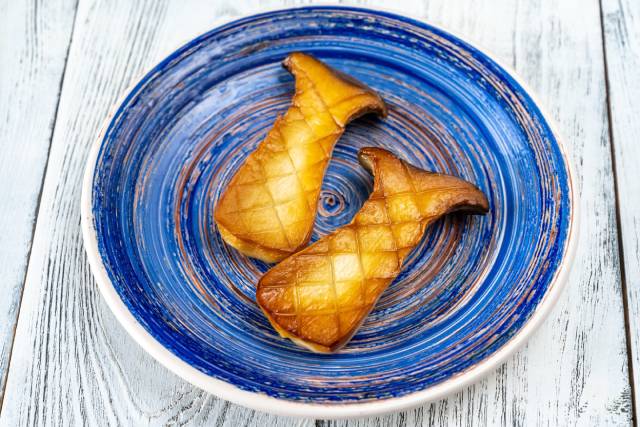
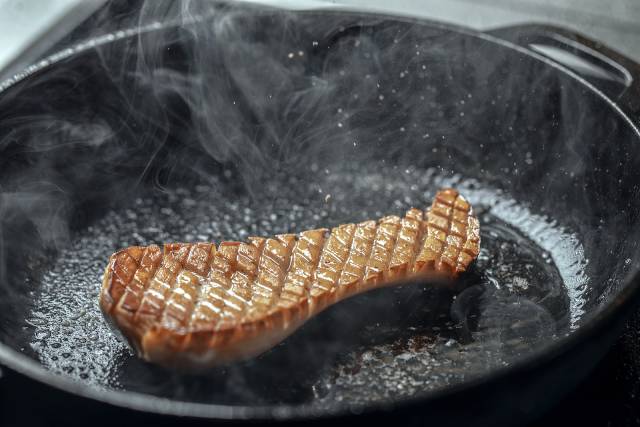
Where To Buy
Many large grocery stores will stock king oyster mushrooms.
If not, most Asian market stores should have them for sale, particularly those that focus on selling Chinese, Japanese, and Korean foods.
Final Thoughts
King oyster mushrooms are great-tasting mushrooms that offer a good range of nutrients for relatively few calories.
Additionally, due to the compounds they contain, such as ergothioneine and bioactive polysaccharides, they may have further benefits for human health.
However, at this stage, there is a lack of randomized controlled trials involving human participants to confirm this.

